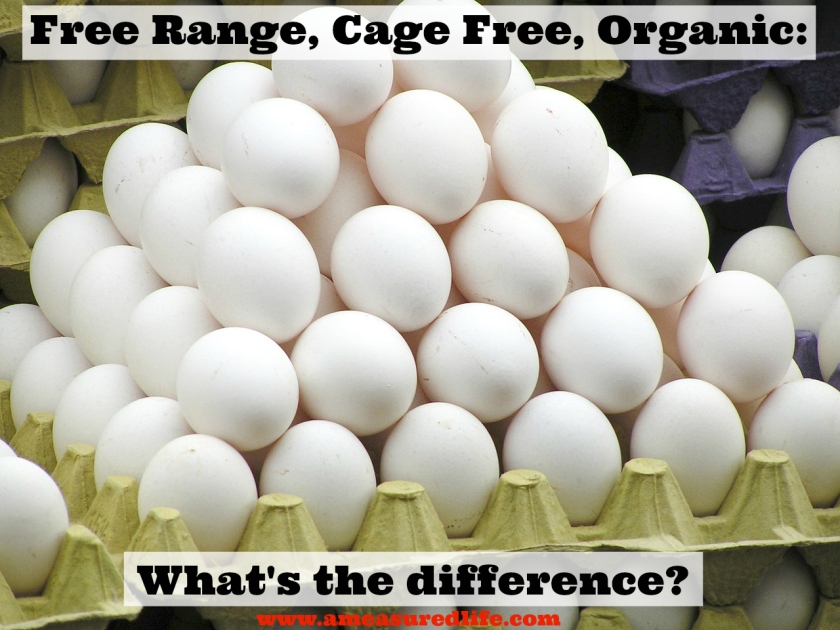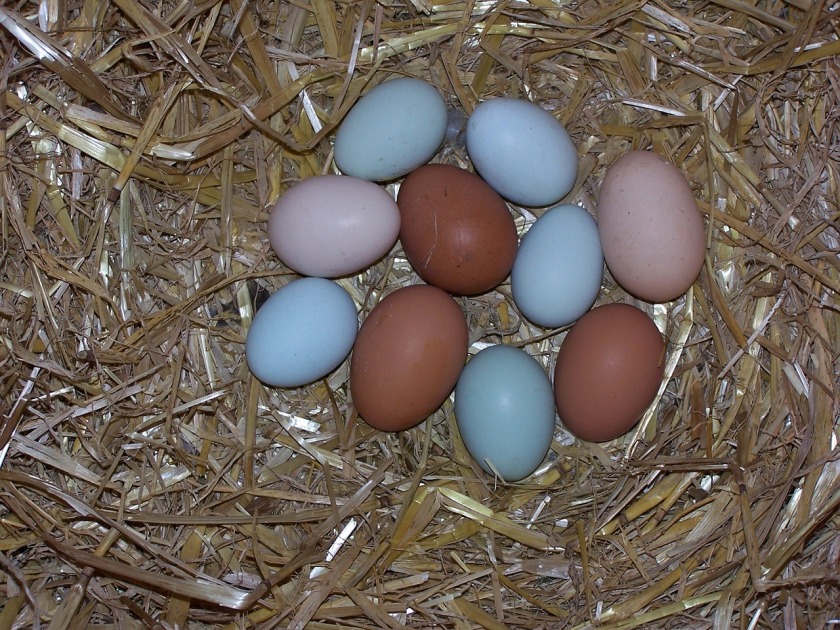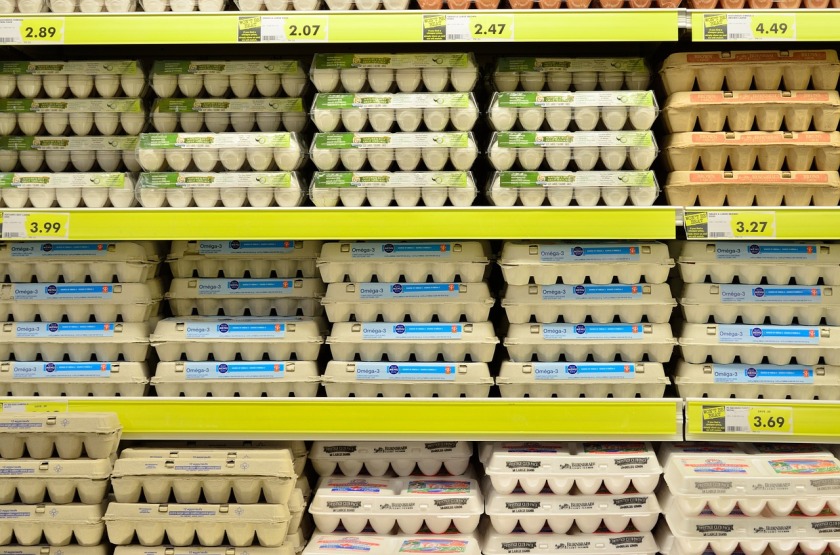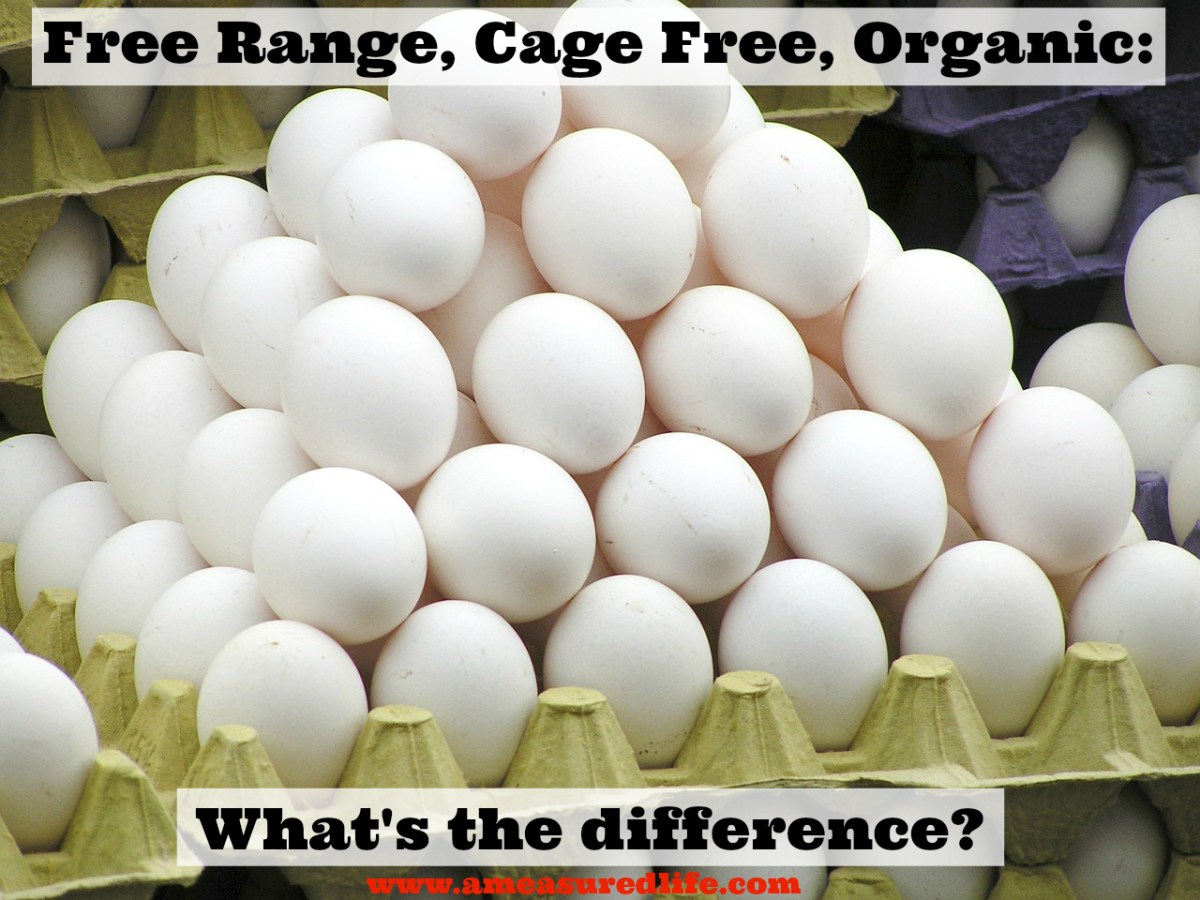 There’s a lot of marketing jargon (read: bullshit) out there on our food that may make deciding on what to eat feeling overwhelming. Something as simple as eggs can make even the most savvy shopping left feeling overwhelmed and exasperated. I won’t be going into the ethical aspects of egg production, that is best left to other blogs. But what I will be addressing is what these labels actually mean, and if they make spending the extra money worth it for a frugal household. I’ve already been clear in previous entries that buying organic or local isn’t worth the money to me, but this is less about my personal opinion and more about how we need to be more educated as to how our food is marketed to us.
There’s a lot of marketing jargon (read: bullshit) out there on our food that may make deciding on what to eat feeling overwhelming. Something as simple as eggs can make even the most savvy shopping left feeling overwhelmed and exasperated. I won’t be going into the ethical aspects of egg production, that is best left to other blogs. But what I will be addressing is what these labels actually mean, and if they make spending the extra money worth it for a frugal household. I’ve already been clear in previous entries that buying organic or local isn’t worth the money to me, but this is less about my personal opinion and more about how we need to be more educated as to how our food is marketed to us.
First, I’d like to shed some light on a widespread misconception:
 The color of an egg’s shell has nothing to do with its nutritional value. From IncredibleEgg.org:
The color of an egg’s shell has nothing to do with its nutritional value. From IncredibleEgg.org:
Egg shell and yolk color may vary. Color has no relationship to egg quality, flavor, nutritive value, cooking characteristics or shell thickness.
Now onto the various labels you’ll need to decipher in the dairy aisle.
 Standard
Standard
You won’t find any special labels on these. These birds are raised in battery cages, which means small cages that house from 4-12 birds, providing each bird with less than half a square foot of living space per bird. Stacks of these cages are inside of massive warehouse-style barns that house tens of thousands of birds. They are fed a mixture of corn and feed made from animal by-products. Ninety-five percent of all commercial eggs are raised this way.
Cage Free
You probably imagine hundreds of chickens frolicking happily in an open field, free to roam and peck. While the chickens don’t live in cages, like the name implies, they do live densely packed, in approximately 1 square foot of space apiece, hardly free-roaming. Animal advocates argue that this is better than standard egg production practice, since the hens are able to move around at will and have stronger bones and more feathers than caged birds, but the frequency of death was more than double in Cage Free birds, due to poorer air quality and being pecked to death by other birds (oh yeah, chickens are territorial).
Free Range
All Free Range chickens are Cage Free but not all Cage Free chickens are Free Range. Chickens that are raised Free Range are required to have access to the outdoors. The problem is there is no minimum as to the quality of the outdoor space. Some are provided nothing but small screened areas with a concrete floor. The access to these spaces may merely be small doors that can be unpleasant for the chickens to walk through because of the wind vortex created by the ventilation fans, and the chickens may choose to never access said area. The term “Free Range” in egg production has no government oversight, so producers often interpret it as they see fit.
Organic
To have the Organic stamp on the packaging, Organic eggs need to be Free Range (and thus Cage Free) fed an organic diet, and not be given any hormones or antibiotics. The USDA makes sure these standards are met, but there is no minimum requirement for space for the chickens to live, and they’re often still raised in crowded conditions.
Vegetarian Fed
For starters, chickens are not naturally vegetarian. They’re omnivores, and love to chow down on protein-rich insects along with the grains. Their diet needs to be supplemented with amino acids in order for them to remain healthy.
Pasture Raised
This is probably the best method of egg production, for the chickens anyway. The chickens are raised mostly outdoors, with access to a barn for shelter. They’re permitted to eat all sorts of insects and are given corn as feed (which may or may not be organic). Once again, there is no standard when it comes to the amount of space provided per chicken: some pasture farms can be quite crowded, while some may have quite a bit of space. Some farms may move their chickens from pasture to pasture to provide them with fresh land to scratch and peck, and some may keep them in one pasture their entire lives. There isn’t any regulation here.
Terms That Are Pretty Much Bullshit
No Hormones – it’s illegal to give hormones to poultry in the US so all eggs are No Hormones
No Antibiotics – antibiotics are rarely given to chickens in the egg production industry
All Natural – can mean whatever the producer wants it to mean, there’s no regulation
Sources
- http://www.wsj.com/articles/free-range-cage-free-a-consumers-guide-to-egg-terminology-1426100409
- http://www.npr.org/sections/thesalt/2014/12/23/370377902/farm-fresh-natural-eggs-not-always-what-they-re-cracked-up-to-be
- http://www.incredibleegg.org/where-eggs-come-from/
I hope this helps you decipher some of the more confusing marketing terms on your eggs. Which type of eggs you buy is entirely up to you, your budget and your conscious, but we should all take the time to better educate ourselves on the lingo that helps us choose.



When I can, I buy my eggs from a local vendor at the farmer’s market. I encourage anyone who has access to someome who raises chickens and sells eggs to get their eggs from them. The difference between a fresh egg and store bought eggs is incredible!
LikeLiked by 1 person
that’s the best way to assure your eggs are from chickens that are treated well. My Godmother lives on a farm and her granddaughter was selling farm eggs from their plant nursery. $3/a dozen and those chickens had the run of the place!
LikeLike
This is an amazing post Andrea. So detailed. Great job. 🙂
LikeLike
I thought I had eased my conscience by choosing only free range eggs, but now I see I’m really going to have to buckle down on finding a local egg source. I wish I could go vegan and not worry about it at all, but it’s impossible for me because of my reactive hypoglycemia. I have to have low carb protein sources (I can’t get 90 grams of soy protein a day!).
LikeLiked by 1 person
Sorry about that! It wasn’t my intention to induce guilt, just to clarify. 🙂 thanks for your comment!
LikeLike
Haha ignorance is bliss (but only for the ignorant). Id rather know the truth!
LikeLiked by 1 person
I’ve always known there’s not really any such thing as a ‘better egg’ unless you happen to buy from a small, local farm, but I never knew the terminology used, so cool, TIL.
There is so much hype around organic products it’s a miracle anyone can figure out what any of it means. At the end of the day my only organic staples are apples, tea, and peanut butter (and the latter is just because I think it tastes significantly better). As far as I can see, any time you consider organic, there are only two questions that need answers:
1. do I think the organic version tastes better enough to justify the cost difference?
2. How excessive is the pesticide usage? (ie: is it part of the dirty dozen and how frequently do I eat it if it is)
Once you boil it down without all the marketing jargon, the list of things you’re willing to bend a tight budget to accommodate is generally pretty short.
LikeLiked by 1 person
You know, the USDA allows some pesticides in the growth of organic plants as long as the pesticides aren’t synthetic. And some of them are worse than synthetics, so we’re not out of the woods there, either. I agree with you, though, I tried organic strawberries once and I didn’t really enjoy them very much. Not worth the money for me.
LikeLike
Yeah, but I do think there’s (in some crops) a large difference in how much pesticide is used, and also for those few of us who are lucky enough to have some variety of chemical allergy and can end up more sensitive than the average person to the synthetic stuff.
In spite of strawberries being one of the worst, I rarely eat them because even non-organic ones can be pricey, so I don’t worry about them and just take extra care in washing them. Apples, on the other hand? I can’t go back on that one. The difference is too noticeable. And, I actually get stomach upset from non-organic tea. That was a cool discovery for me, though, because they told me that, with GERD, tea was going to be an issue. I tried decaf, and that wasn’t any easier on my stomach, but organic tea doesn’t bug me at all (except some chai teas, which is a tea blend that often uses pepper, so no surprise there), so that also became a no brainer in my case. I can have organic tea, or I can have a 50/50 shot at murderous reflux. Easy call since I love good tea.
Either way, in the end it’s about prioritizing, and if you choose organics, choosing the ones that matter to you most. Being gluten-free, I do end up eating a lot of organic stuff as a sort of accident, since a lot of tasty gluten free things happen to be in the health food isle, but that’s incidental organics, so I don’t count it since it’s not as if I chose that product for that reason. It just makes sense for “health food” companies to appeal to as many special dietary groups in one package as possible, so they often do. I tend to expect food to be one of my bigger ticket budget items due to the special needs, but that doesn’t mean I don’t prioritize what I’m more willing/less willing to pay extra for.
LikeLiked by 1 person